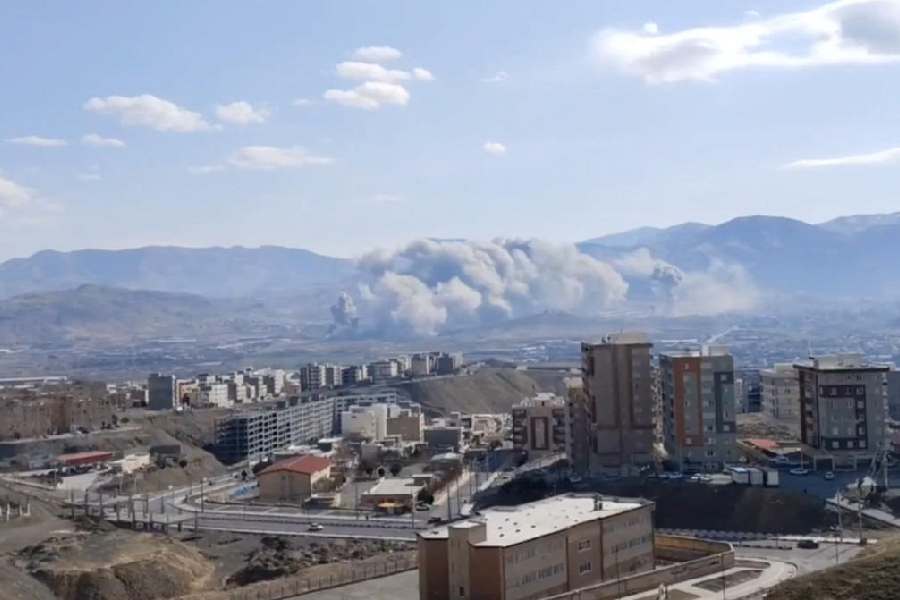 |
West Singhbhum deputy commissioner Sunil Kumar has to travel to the state capital often as he is also managing director of the Ranchi Industrial Area Development Authority
Palamau commissioner Maheshwar Prasad Mishra, too, has a raw deal. He has to shuttle between Daltonganj and Ranchi, 170km apart, to fulfil duties as vice-chairman of the Ranchi Regional Development Authority.
Sunil Kumar Burnwal’s fate is worse. He holds four important portfolios: inspector-general (prisons), additional chief executive officer of Jharkhand Agency for Promotion of Information Technology, tribal welfare commissioner and managing director of Tribal Co-operative Development Corporation
Ranchi, June 10: IAS officers are Jharkhand government’s most precious. It has 143 sanctioned positions, but only 106 IAS officers to choose from. This apart, 22 bureaucrats aren’t available for duty now.
So if power projects and MoUs aren’t taking off or the state is seen to be slow, if not lethargic, in its efforts to get sports infrastructure ready for the December National Games, there’s an underlying reason.
Jharkhand doesn’t have enough bureaucrats to take charge of its departments. And those who are there, are burdened with too much. Joint secretary, personnel and administrative reforms department, Vimal Choudhary is cut and dry. “We now have 104 officers. Two officials are on deputation here from other states. So, the available strength is 106.”
About 20 officials of the Jharkhand cadre have gone on central deputation. Two IAS officers — former deputy commissioner of Ranchi K.K. Sone and his wife and former Lohardaga deputy commissioner Aradhana Patnayak — are on study leave.
Former chief secretary A.K. Chug is on leave for a year. The future doesn’t look good at all. Some senior bureaucrats are set to retire within a couple of months.
“I am trying my best to ensure that I can do justice to all the departments,” said Burnwal who holds four crucial portfolios. But it’s amply apparent that for Burnwal and others like him, policy formulation, project implementation, monitoring and field visits are being hampered.
Personnel secretary R.S. Sharma pinned the blame on the UPSC, saying it was delaying promotions in the state services. “The problem is basically due to the delay in promoting state civil service officials. These promotions to the IAS cadre by the UPSC are pending since 2005 due to some legal wrangles,” he said.
“We are in constant touch with the Centre to get more IAS officials,” Sharma added.
Senior officials also point to an “unreasonable” state government which increased number of departments without taking into consideration the number of personnel available to man them.
“When the state was carved out of Bihar, there used to be less than 20 departments here. Now the Jharkhand government has about 30 departments but there aren’t enough IAS officers to post in each department,” said a bureaucrat.
In a small state like Jharkhand, where Independents have considerable power and clout, the state government tends to succumb to various demands of its allies. The net result is that more and more departments get created to please MLAs.
For example, said an officer, one secretary used to handle the revenue and disaster management departments. Now, each of those portfolios is a department. Departments like institutional finance could have been a part of the finance department.
Another IAS officer pointed out in Bihar, the Nitish Kumar government had reduced the number of departments following recommendations of former chief secretary V.S. Dubey.
But, would a similar move curtail the shortage of bureaucrats in Jharkhand? Not necessarily, said a senior bureaucrat.
“Not all ministers get along with all IAS officers. They (ministers) always insist that the chief minister post an officer of their choice to their department,” he said. “No wonder several senior and upright officers have been pushed into oblivion.”











